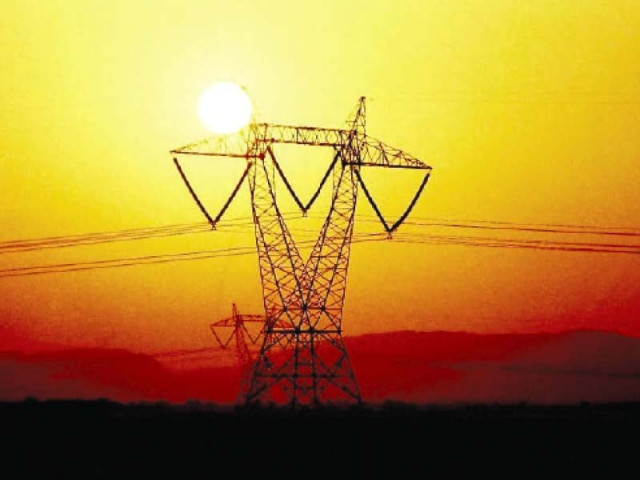Power theft may hurt financial stability
Owing to theft and inefficiencies, circular debt continues to plague energy chain

Amid countrywide protests over inflated electricity bills, the circular debt continues to plague the entire energy chain including Pakistan State Oil (PSO) owing to unchecked power theft and company inefficiencies.
No government has been able to curb circular debt while the power-sector regulator increased electricity rates several times, triggering widespread demonstrations across the country. The situation is so alarming that the common man, while paying hefty bills, has also endured load-shedding. On the other hand, the regulator allows capacity payments to even those power plants that remain idle.
Currently, power producers have to pay Rs183 billion to the cash-strapped oil marketing giant PSO, which has total receivables of Rs756 billion from different clients.
Read How Electricity Theft Impacts Pakistani Society
State power generation companies (Gencos) owe Rs150.6 billion, Hubco has to pay Rs27.5 billion and Kapco owes Rs5 billion.
In a turbulent economic scenario, Pakistan’s power theft problem is a hidden threat that may undermine the nation’s financial stability. As inflation touched nearly 40% in May, the country teetered on the brink of default. The IMF’s recent standby arrangement of $3 billion provides a momentary reprieve.
Statistics of power theft are startling. According to the Power Division, the financial impact of electricity theft over the past 15 months was estimated at a staggering Rs500 billion. What is more alarming is the government’s inability to prosecute offenders.
Despite receiving 55,000 complaints and registering 20,000 FIRs, only 528 people have been arrested. This lackadaisical approach to curbing power theft has contributed to the infamous circular debt.
To understand the extent of the problem, revenue shortfall of distribution companies (DISCOs) in financial year 2021-22 can be considered. There was enormous billing for 107,866 million kWh units worth Rs2.3 trillion, against which recovery was 80.33%.
Consequently, there was a revenue shortfall for several companies and the total amount of circular debt, as of June 30, 2022, stood at Rs2.2 trillion. Experts say that a national dialogue on the seriousness of the issue is paramount.
While attempts at reducing the circular debt are going on, such as the approval of Rs415 billion to reduce the gas-sector circular debt, these measures may only partially address a systemic problem.
Previously, former energy minister Khurram Dastgir had been approached by the power-sector stakeholders for making necessary changes to the Pakistan Penal Code (PPC) in order to use the law for curbing theft.
Read more Menace of power theft
The magnitude of losses incurred by DISCOs coupled with the unabated power theft illustrates the inefficacy of current strategies. Despite the crisis, miscreants continue to exploit the system with impunity, reflecting a gross lack of oversight and enforcement.
In contrast to Pakistan’s approach, other countries have exhibited an unyielding stance against power theft.
In the United States, stealing electricity can attract a fine of $150,000 and five years of imprisonment. India’s punishment for electricity theft may extend to three years of imprisonment.
Such punitive measures send a strong message that theft, irrespective of its nature, is a serious crime, say power-industry officials.
The IMF’s insistence on curtailing Pakistan’s power-sector debt, which has now ballooned to over Rs2.6 trillion and about 4% of GDP, signals international concerns because development expenditure is curtailed to achieve macroeconomic stability.
This is largely due to the reliance on imported fuels for energy. The standby arrangement emphasises the need for structural reforms, especially in the energy sector.
It’s crucial to recognise that controlling power theft is the biggest catalyst for resolving the circular debt crisis. Without curbing this menace, simply pouring funds into debt reduction is like pouring water into a leaking bucket.
What is needed is a robust and an effective enforcement mechanism, a serious commitment from law enforcement agencies and a broader cultural change.
Public awareness of the grave consequences of power theft should be fostered and stringent punishments must be imposed. If stealing electricity can be a serious crime in other countries, there’s no reason Pakistan shouldn’t follow suit.
Experts also suggest that the government should split DISCOs into small units to overcome theft and inefficiency. They have very large areas of coverage and therefore it becomes difficult to manage the huge base of consumers.
Published in The Express Tribune, August 27th, 2023.
Like Business on Facebook, follow @TribuneBiz on Twitter to stay informed and join in the conversation.



















COMMENTS
Comments are moderated and generally will be posted if they are on-topic and not abusive.
For more information, please see our Comments FAQ